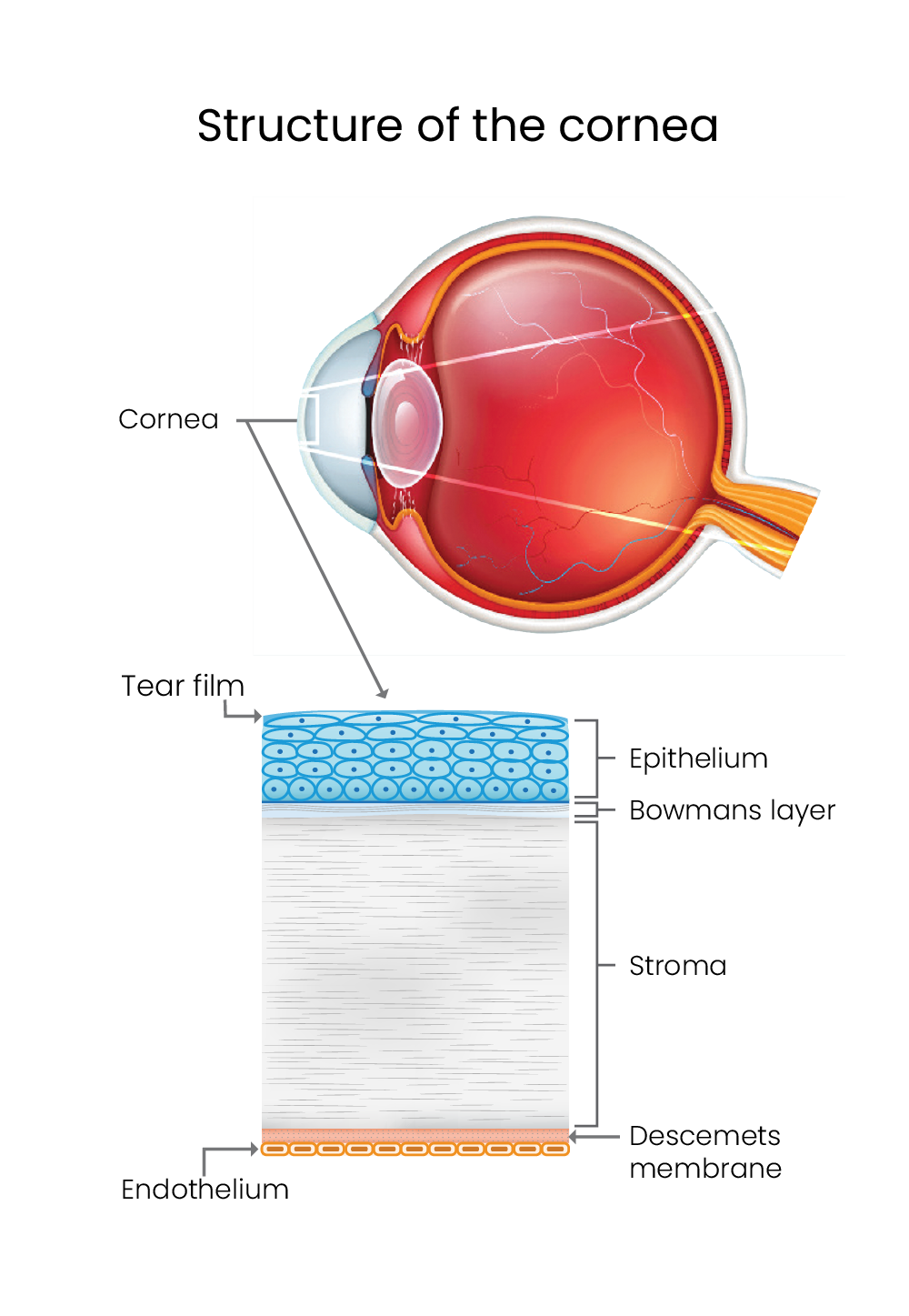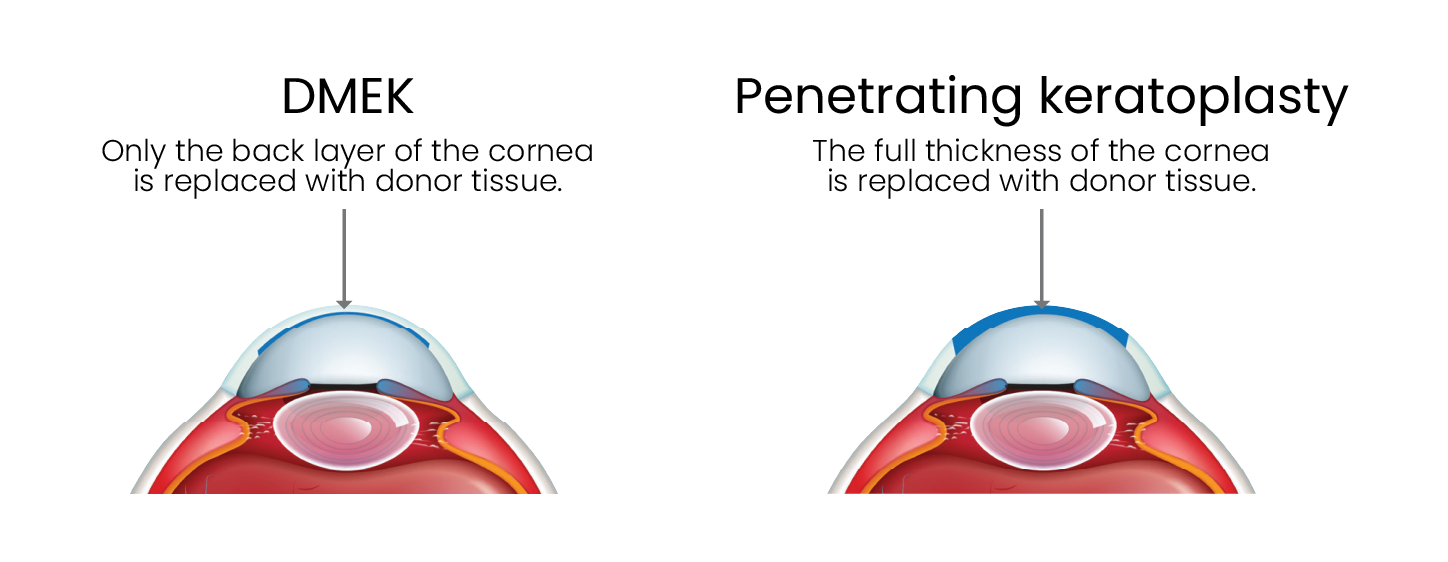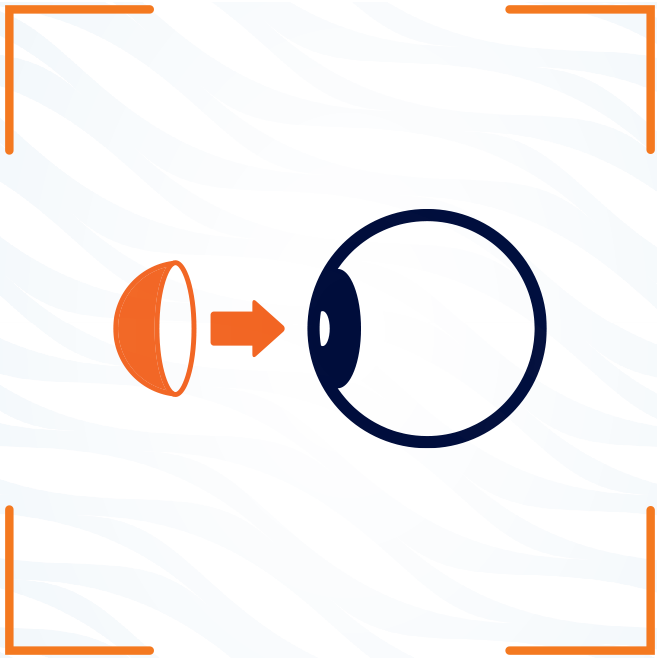What is a corneal transplant?
A corneal transplant is the removal of an unhealthy or diseased cornea, and its replacement with healthy donor tissue.
The cornea is the transparent front surface across the eye. It allows light to enter and is essential for effective vision. The transplant may be required for some people to recover functional vision, reduce eye pain or improve its appearance. In same cases, people may need the operation to protect the eye’s structural integrity.
It is an operation that may be required for a range of conditions including:
- Fuchs endothelial dystrophy
- Pellucid marginal degeneration
- Terrien’s marginal degeneration
- Keratoconus
- Ocular surface scarring
- Corneal trauma, injury or infection

What are the different types of corneal transplant surgery techniques?
Full thickness penetrating keratoplasty
Full thickness penetrating keratoplasty is the replacement of all three layers of the cornea. The diseased or damaged cornea is removed, and donor material reattached. Sutures hold the graft in place for up to 12 months.
Partial thickness corneal transplants
Partial thickness corneal transplants replace only the cornea’s unhealthy layers. This means your healthy tissue can be retained and this can aid your recovery time, reduce the risk of rejection and potentially improve your vision outcomes.
Descemet’s Membrane Endothelial Keratoplasty (DMEK)
DMEK is the most advanced surgical technique that is the least invasive, with a lower rejection rate. It replaces the cornea’s Bowman layer, which measures just 10-15 microns.

What happens during a corneal transplant?
You will have an anaesthetic before the surgery, either local or general. Each eye will be operated on separately. Surgeons measure the amount of cornea to be removed and grafted.
What is the expected recovery from a corneal transplant?
It will take time to recover from your corneal transplant. For a full-thickness corneal transplant, this may be up to a year. But for DMEK, it is expected to be within weeks.
There is a risk your body could reject the graft. Steroid and antibiotic eye drops are prescribed following surgery to ensure optimal healing of the tissue and acceptance of the donor tissue.
Do you have a question or concern about your eye health? To discuss your condition with an experienced ophthalmologist or optometrist, please contact The Eye Health Centre



